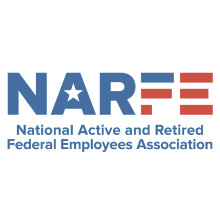SEA Letter to House OGR on Federal Employee CompensationDear Chairman Chaffetz, Ranking Member Cummings, and Members of the Committee: On behalf of the Senior Executives Association (SEA) – which represents the interests of career federal executives in the Senior Executive Service (SES), and those in Senior Level (SL), Scientific and Professional (ST), and equivalent positions – I write to offer perspective to the committee’s hearing on federal employee compensation. SEA does believe the government needs a dramatic overhaul of its personnel systems and management philosophy to ensure it can attract and retain the talent needed to accomplish agency missions in the 21st century. As Congress explores what changes may be necessary, and whether legislation is truly required or if improvement can be achieved through executive action or existing agency authority, Congress must ensure it upholds promises made to current employees and annuitants through their employment contract with the federal government. It would be unfair and would break a contractual bond with those employees to move the goalposts on employees who have worked a career understanding a certain arrangement, only to see that changed. If new compensation systems are required for the federal workforce of the future, that is a fair and appropriate debate for Congress as the Board of Directors of the federal workforce to have. As the committee examines studies on federal employee compensation, it is critical to retain a focus on the bigger picture – the career civilian employees of departments and agencies of the United States Government are charged by Congress with vast and critical missions that Americans depend on every day. Consequently, Congress must ensure the federal government has the policies and tools in place, including compensation and benefits offerings that enable it to compete in the talent economy for the best and brightest employees. As highlighted by the Government Accountability Office (GAO), the government has critical skills gaps in several mission-critical areas, many of which require advanced degrees or specialized training. Federal employees today are not green eyeshade wearing bureaucrats of yesteryear when the General Schedule and existing workforce and performance management frameworks were established in law. The government increasingly employs highly educated and technically specialized employees to accomplish agency missions, and needs to do much more to attract, retain, and cultivate these types of future employees and career leaders. While it is true that some new tools are needed, particularly around hiring, agencies also must make better use of existing authorities and flexibilities. GAO and Inspectors General have made many important recommendations that agencies could and should implement today. In recent years, Congress has viewed the federal workforce largely as a cost to the public, regardless of the important work carried out by federal employees. Successful organizations, however, view their employees as assets who merit investment and development, with the goal of cultivating a high performance organization. The focus of the last several Congresses on “accountability” has completely neglected the fact that accountability is a two-way street, constituting both incentives for exceptional performance as well as consequences for misconduct or poor performance. Lawmakers often speak of their goal of achieving an “effective and efficient” government – if that goal is to be achieved, career employees must be provided the tools and support necessary to fulfil that objective. In February of this year I had the pleasure of testifying before the Senate Subcommittee on Regulatory Affairs and Federal Management to discuss how empowering federal managers and executives could contribute to a more effective federal workforce. As the House Oversight and Government Reform Committee explores potential improvements to the laws and regulations governing federal compensation or personnel, I encourage Members to review my comprehensive written testimony, as well as that of my colleague and SEA Board member Robert Corsi Jr., who retired last fall from the U.S. Air Force as the Assistant Deputy Chief of Staff, Manpower, Personnel & Services. We each offer insights and recommendations for addressing issues relevant to the discussions I anticipate this hearing will generate. Thank you for considering SEA’s views. If you have any questions or comments, please contact SEA’s |











